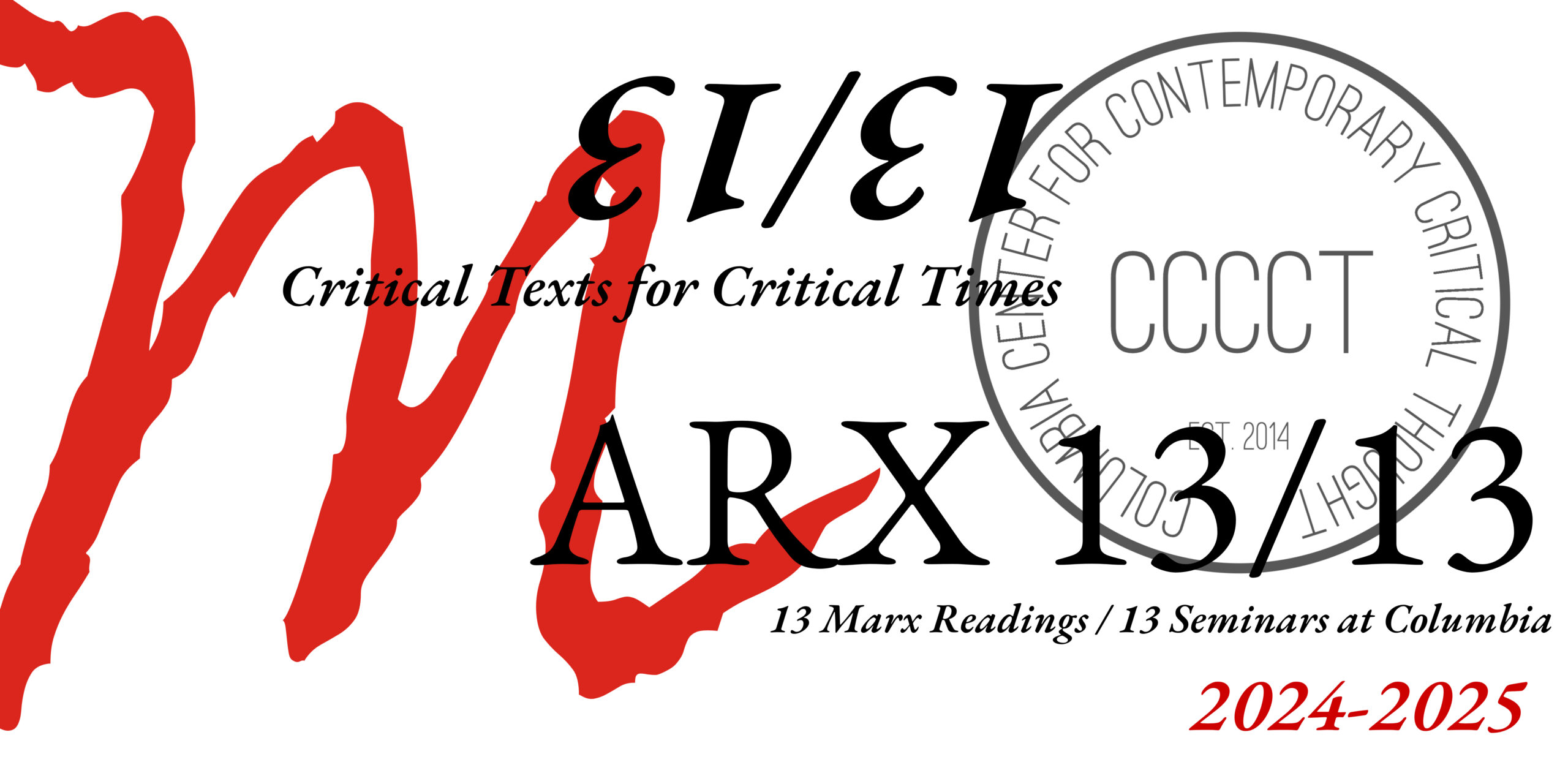GRCCCT 2024 – 2025
Graduate Research Colloquium in Contemporary Critical Thought
Welcome to the Graduate Research Colloquium in Contemporary Critical Thought (GRCCCT)!
The colloquium offers a bi-monthly online workspace for fellow M.A. and PhD students to discuss their research projects in the field of contemporary critical thought.
The goal of the colloquium is to connect students with similar research interests in the field of contemporary critical thought and social philosophy, in particular those working in the aftermath of two traditions of critical theorizing – the so-called “Critical Theory” of the Frankfurt School (Horkheimer, Adorno, Marcuse, Benjamin, Habermas, Honneth and others) and so-called “Post-Structuralism” (Foucault, Derrida, Deleuze, Guattari, Butler, Rancière and others). The colloquium aims to create a discussion between students who build up on and engage with the theories and concepts made available by thinkers from one or both schools of thought.
Moreover, at the end of the academic year the GRCCCT organizes a public workshop at which all participants have the possibility to give a talk and discuss their research with professors from different disciplines. You can also have a look on the “40 years after Foucault” workshop the GRCCCT organized last year in Paris.
We welcome contributions from philosophy or political theory but also other fields of research (sociology, legal studies, literary theory, anthropology, art history, performance studies, data science, etc.). The contributions usually include a short presentation of a research project, for example a dissertation proposal, conference or article paper, or a chapter of a PhD dissertation or M.A. thesis. The presentation is followed by a discussion with the participants of the colloquium who give feedback. In the last cycle of the seminar students presented their research on topics like “Horkheimer’s Dialectic: The Ambiguities of ‘Traditional and Critical Theory’”, “Invisibility of Suffering – Conditions of Social Transformation”, “The Neoliberalisation of the Political as a Hermeneutical Hegemony”, “Mimesis and Paranoia. Epistemologies, Ontologies, and Ethics of Relating to Objects”, “Provincializing Europe and Deprovincializing Racial Capitalism: a comparative analysis between Germany and France”, or “Art, Praxis, Counterculture: A Comparison Between Adorno’s and Marcuse’s Aesthetics”.
In the academic year 2024/2025, the GRCCCT welcomes new contributions. We will kick off with a presentation of a paper by Maximilian Huschke on “Social totality and the dialectics of labor. Hegel contra Habermas.” on December 3rd, 2 pm NY time/8pm Paris time. Feel free to join and discuss their presentation to get a first impression of our research group. In the following months, every participant will have the opportunity to present their own research. If this sounds interesting to you, we would like to invite you to become part of our colloquium. Please fill out this form (2 minutes) and we will get back to you shortly!
Florian Meier for the Graduate Research Colloquium at the Columbia Center for Contemporary Critical Thought (CCCCT)
GRCCCT 2024 – 2025 Program

Workshop: Critical Theory and Normativity – A Conversation with Amy Allen May 20, 2025 02:00 PM Eastern Time (US and Canada), 08:00 PM Central European Time
Organized by the Graduate Research Colloquium at the Columbia Center for Contemporary Critical Thought
This workshop explores the complex relationship between Frankfurt School critical theory and the concept of normativity. Over the last decades, scholars associated with the Frankfurt School have engaged deeply with the notion of immanent critique. This approach to critical theory focuses on the shared but not yet fully realized ideals in our societies, where a gap remains between norm and social reality. Immanent critique attempts to navigate the tension between internal and external forms of critique, while also considering the validity of social practices within specific contexts. A central challenge for immanent critique is to stay sensitive to the historical and social context in which it operates while maintaining a normative reflection on the institutionalized ideals. Especially postcolonial theory and genealogical notions of critique have highlighted the necessity to rethink ambivalent normative entanglements in this interpretation of critical theory.
This session will feature a conversation with Professor Amy Allen from PennState University, whose work offers a critical examination of the relationship between Frankfurt School critical theory, normativity and competing paradigms of critical thought. In her scholarship, Professor Allen has consistently interrogated the so-called normative foundations of critical theory. She argues that later generations of the Frankfurt School – despite claiming to have developed a post-metaphysical theory free from teleological notions of progress – need to rethink their strategies of normative grounding, which are deeply entangled with Eurocentric notions of History. Further, Allen criticizes contemporary critical theory’s ignorance of psychoanalytical approaches, highlighting the effectiveness of this paradigm for a critique of the current crisis of democracy.
In this session, we will engage with Professor Allen’s critique of the relationship between Frankfurt School critical theory and the concept of normativity. We examine how contemporary
critical theory addresses the complex relationship between critique and normative justifications and explore current alternatives to normative theories of critique.
We invite you to participate in this intellectually stimulating discussion, which aims to deepen our understanding of the intellectual challenges facing critical theory today.
For further details and to confirm your participation, please contact Samu/elle Striewski: samuelle.striewski@politics.ox.ac.uk
This workshop is organized by Florian Meier (New School for Social Research), Jonas Lang (University of Frankfurt), and Samu/elle Striewski (Oxford University) for the Graduate Research Colloquium.
